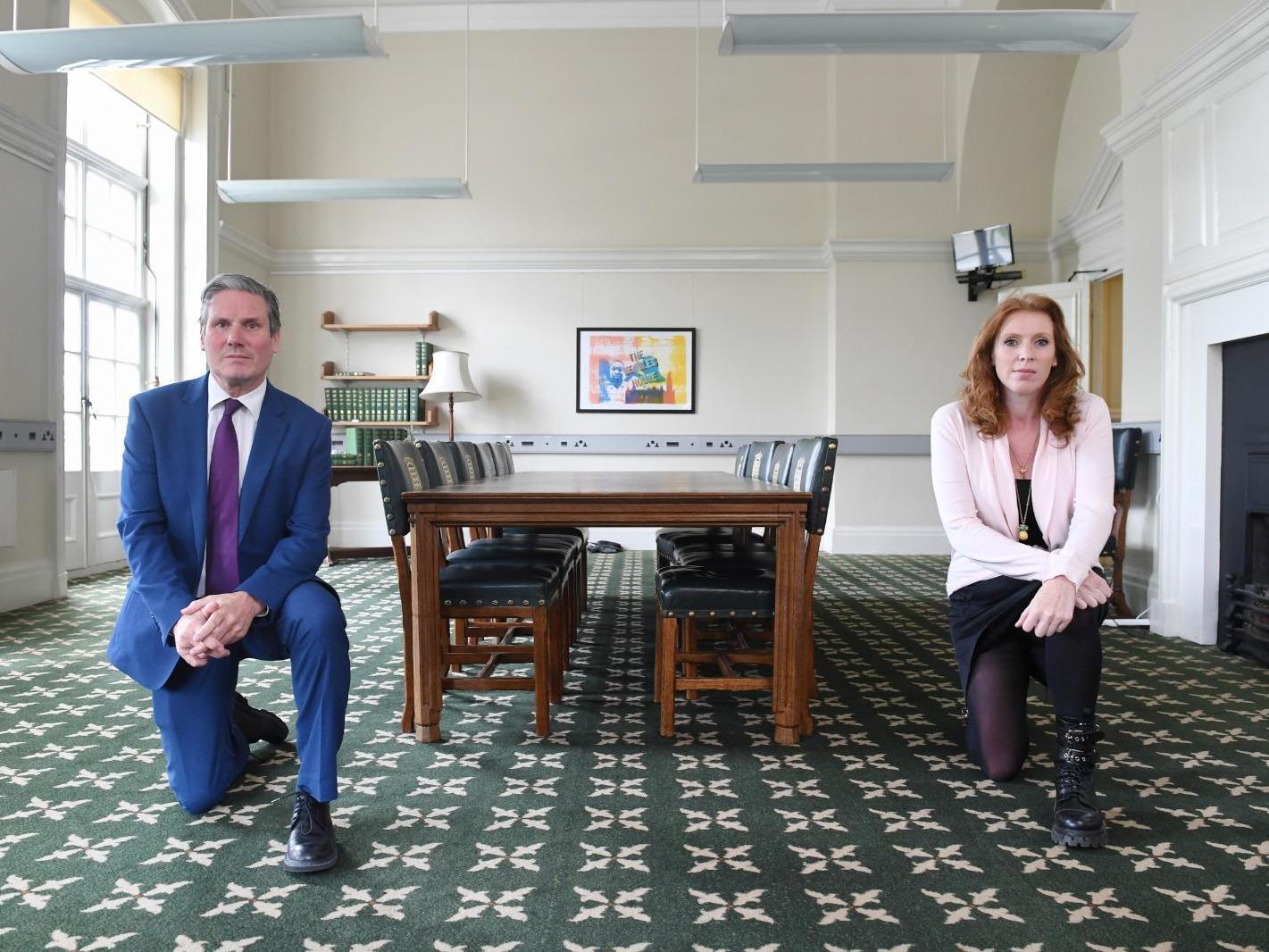Keir Starmer, Black Lives Matter and the significance of political gestures
There’s a long and honourable history of gestures that are more than mere virtue signalling, writes Sean O'Grady


Keir Starmer, it is fair to say given his general background and sensitivity, may have been unfairly maligned for describing the Black Lives Matter protests as “a moment”. He meant a moment of history, a fulcrum around which attitudes and realities could change, even a turning point in history. He was misinterpreted by some as implying the global outrage at the death of George Floyd was just a passing moment, a trivial affair.
Unfair or not, Starmer showed a sure instinct in stopping a controversy that might have got out of hand. Reflecting on his inadvertent offence, he has referred himself for unconscious bias training. It is his way of demonstrating a willingness to listen, and to be sensitive to the feelings of others when the wrong words are used – in stark contrast to Boris Johnson’s attitude towards some of the offensive (to some) things he has written. It also stands in contrast to Jeremy Corbyn, arguably, whose very public acts of sympathy for the plight of the Palestinian people were not matched by a similar demonstration of support for the right of the state of Israel to exist. Perhaps there is politics at work as Starmer senses he still needs his party’s support, and unity, as he tries to steer it back to power, and it was useful to undertake such a public act. Equally, it was the right thing to do, and preferable to getting embroiled in some pedantic linguistic wrangle. What’s more, he has told all Labour staff members to do the same. Given the party’s recent issues with antisemitism, it seems a wise course of treatment.
Starmer’s move, like the photograph of him and Angela Rayner taking the knee – a dignified still image rather than a videoed “media event” that would feel more like a stunt – has been vilified by some as mere “gesture politics”, just “virtue signalling”; a no-cost, insincere symbol that changes nothing of substance.
Indeed Starmer’s training course will not transform anyone’s life for the better, but it matters all the same. It may do some good. It might encourage others to mind what they say. Dominic Raab, for example, as foreign secretary especially, might have briefed himself a bit more thoroughly the other day about the solemnity of taking the knee, rather than going on television and flippantly dismissing it as something to do with Game of Thrones (and making no subsequent effort to say sorry). It might make many others such as police officers and those managing businesses do the same.
Gesture politics is not the same as political gestures, which have a long and honourable and powerful history. There is a difference. It is probably down to dignity and sincerity. Gestures can be eloquent. There are many memorable examples of such moving portentous moments in history. When presidents Kennedy and Reagan visited the Berlin Wall in gestures of solidarity; when the Queen bowed in the garden of remembrance in Dublin where IRA men killed fighting the British were buried, and her handshake with Martin McGuinness. In 1970, the then German Chancellor Willy Brandt electrified the world when he fell to his knees in repentance at the monument to the Warsaw ghetto uprising; as John Paul II did signal humility every time he kissed the ground when he landed for a papal visit. The historic handshakes on the White House lawn between Carter, Sadat and Begin in 1979, and in 1993, Clinton, Arafat and Rabin were real evidence of progress to peace, though not sustained. Nelson Mandela’s whole life after his release from prison in 1990 was a series of epochal political gestures of forgiveness and reconciliation.
True, Keir Starmer going on an unconscious bias course hardly fits into that grand historic pantheon of world statesmanship. Yet in its own small way it is an example to others and something that might do a little practical good, and be appreciated. It is, in a good, modest way, a bit of a moment.
Join our commenting forum
Join thought-provoking conversations, follow other Independent readers and see their replies
Comments